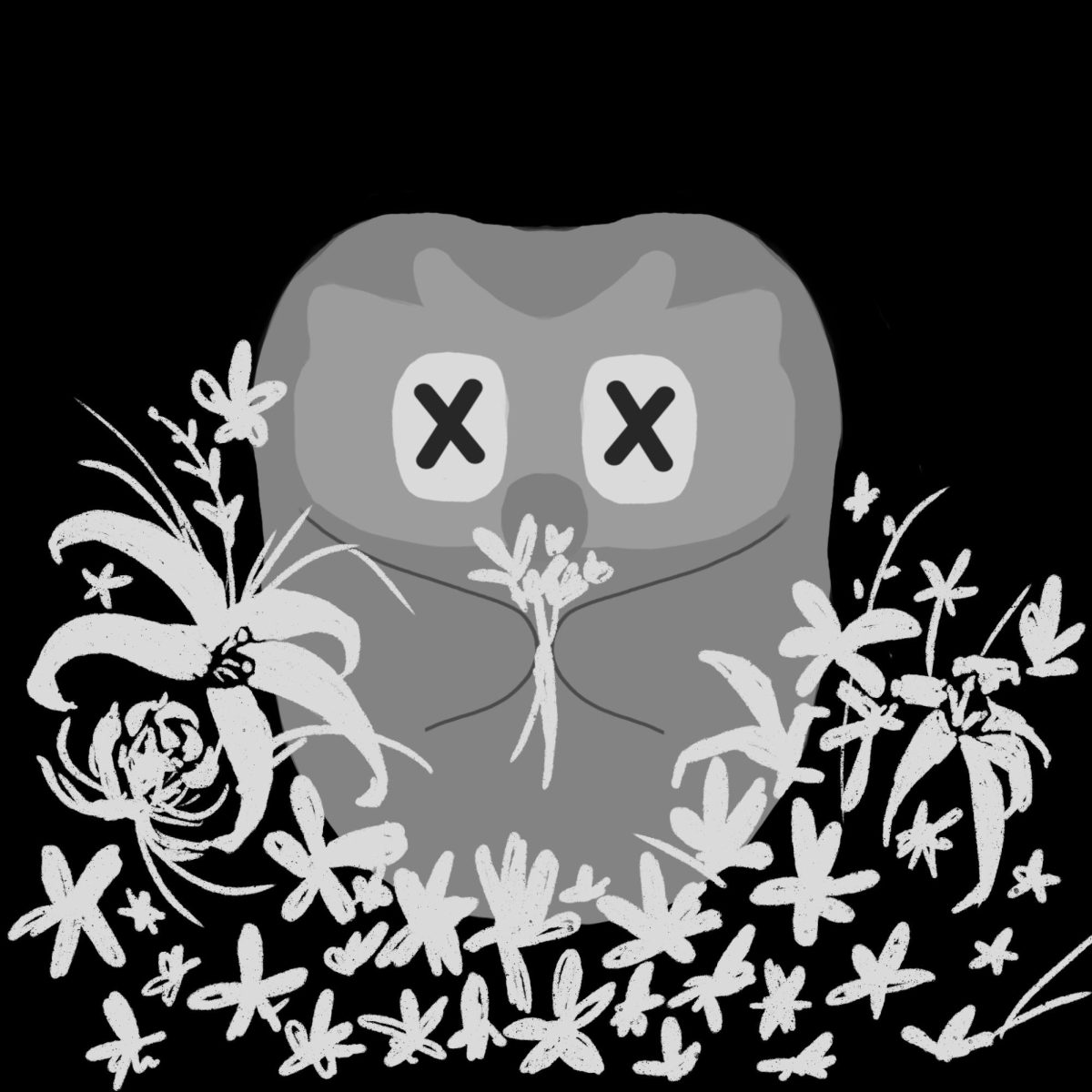Vulgar ad mascots should take lessons from Ronald
February 15, 2005
While my parents and teachers held some influence over me as a child, my behavior was mostly… While my parents and teachers held some influence over me as a child, my behavior was mostly molded by the colorful creations of the advertising and public service announcement industries.
From what cereal to eat to what theme park to visit to whether to waste my life away doing drugs, there was always a bubbly, cartoon mascot telling me the right decision.
Advertising icons loom over our society. A recent Polling Company survey found that only 11 percent of Americans can name three Supreme Court Justices, but 66 percent can name the three Rice Krispies mascots.
But not all ad idols are as innocuous as Snap, Crackle and Pop. A strange, new generation of advertising mascots has emerged, and recently a few of them have caused controversy.
First is “Copyright Crusader” Garret the Ferret. A creation of the Business Software Alliance, Garret tells kids that downloading copyrighted movies and music is uncool. To show his street cred, Garret wears baggy jeans and a golden “G” medallion.
A gold medallion? A character that argues that peer-to-peer downloading steals money from musicians wears a piece of jewelry musicians use to symbolize vast, disposable wealth. Brilliant.
In a move peer-to-peer downloaders call brainwashing, the BSA is shipping “educational comic books” starring their stupid-looking ferret to fourth-grade classrooms across the country. Why fourth grade? Because, as demonstrated by the recording industry’s infamous lawsuit against a 12-year-old Kazaa user last year, once kids get much older, you can simply sue them.
Meanwhile, another cartoon animal is causing uproar in the United Kingdom. Reuters reports that 60 Britons have complained to the country’s advertising regulators about Crazy Frog, the mascot of a cellular phone company, because of the motorcycle-riding frog’s small, but visible, penis.
The U.K. Advertising Standards Authority said that a streaking amphibian is OK because no “inappropriate references were made about its anatomy.”
Still, the idea behind Crazy Frog is deranged. Think about it. Have you ever seen a frog phallus? They are microscopic. A penis on a cartoon dog or horse would be needless but still anatomically correct. In this case, the ad agency must have consciously decided that a well-endowed frog would sell more phones. What the heck?
I can’t imagine a more bizarre and inappropriate character to associate with a commercial product — except maybe Soviet dictator Josef Stalin.
Reuters reports that Canadian liquor stores are refusing to sell bottles of wine bearing a picture of Stalin with U.S. President Franklin Roosevelt and British Prime Minister Winston Churchill because of complaints from Canada’s Ukrainian community. The wine commemorates the 60th anniversary of the three leaders’ meeting at the Yalta Conference, but Ukrainian immigrants say it is inappropriate to use any image showing Stalin, whose regime ransacked their country, on a product.
A representative of the Ukrainian Canadian Civil Liberties Association told Reuters, “I don’t think anyone in Canada would welcome a Hitler Riesling or a Stalin sherry or a Pol Pot port or a Mao Zedong merlot.”
This is the only quote ever to make me dismayed at mankind’s capacity to produce monsters — and really, really thirsty.
So now that advertising mascots are conditioning kids to buy crappy CDs for one good song, exposing themselves on TV and endorsing communism throughout Eastern Europe, who are children to look up to?
Well, one ad icon wants to be a role model: good, old Ronald McDonald. The Financial Times reports that, in response to child health concerns, new ads show the McDonald’s mascot dancing, playing soccer and lifting weights — probably while cussing out the director of “Super Size Me” under his breath.
Because Ronald McDonald helped popularize advertising mascots 40 years ago and because he now seems to want to take responsibility for his influence on society, perhaps he should guide this new generation of ad icons to respectability. We need you, Ronald. Your first order of business: Get that freaking frog to put on some pants.
E-Mail Nick Keppler at pnk6@pitt.edu.


